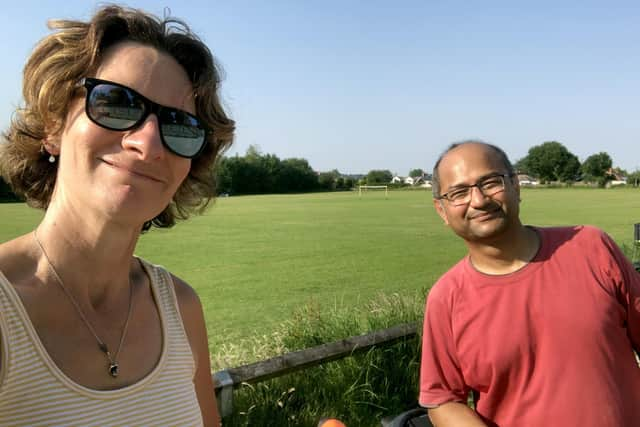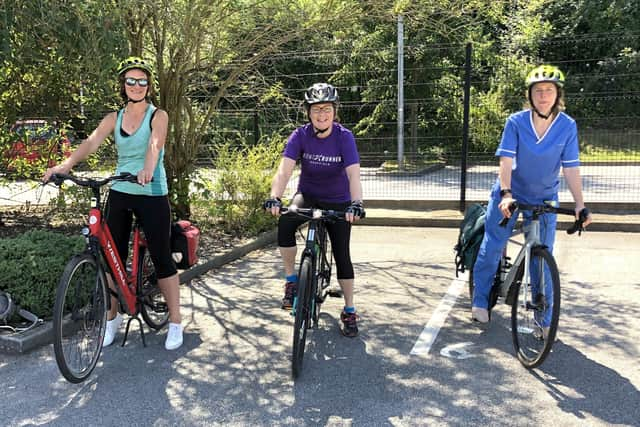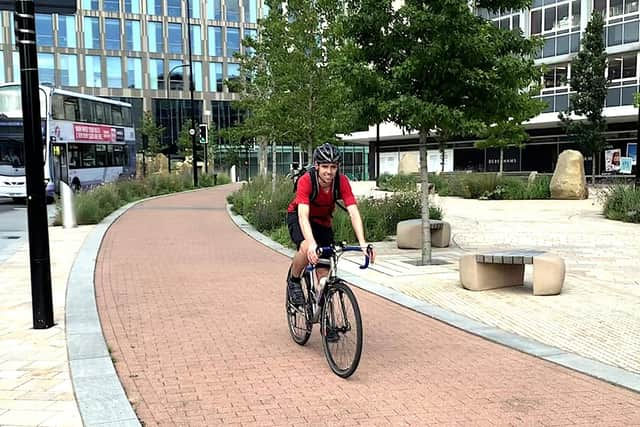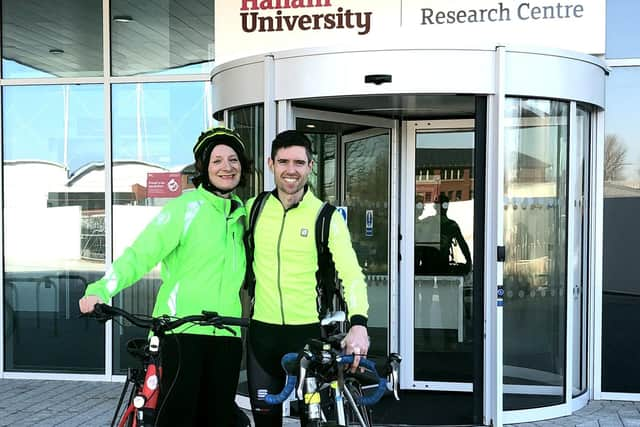GPs tackle 100-mile 'Tour de Sheffield' to encourage colleagues to Move More
and live on Freeview channel 276
“We met so many people doing so many different things, and lots of them said ‘we’re not doing enough!’” says Dr Jo Maher, who covered the longest ride she had ever made on the Tour de Sheffield, at more than 50 miles.
“But I said to them that collectively the power of all those small things is immense.”Dr Maher and colleague Dr Andy Douglas met medics who have sold their cars after buying an e-bike, doctors who have rediscovered their childhood love of riding a bike after a cycling confidence lesson with local cycle trainers Pedal Ready, and a GP who told the story of a 23-stone patient who lost 10st after starting to cycle and is now an official cycle ride leader.
Advertisement
Hide AdAdvertisement
Hide AdDr Douglas says: “There’s so much evidence that cycling to work is good for all kinds of conditions, and there’s also evidence that doctors are very good role models as public figures.


“Advice from a doctor does transition into behavioural change.”The doctors are keep to promote the power of ‘social prescribing’ which allows doctors to ‘prescribe’ activity like walking and cycling to patients when it will benefit their physical or mental health.
And the public are interested, says Dr Douglas.
“We went from no-one travelling actively to six to seven in one year where I worked at The White House Surgery,” says Dr Douglas of his former Manor practice, on Fairfax Rise.
“Once one or two people start walking or cycling to work, other people start talking about it and thinking about how they can do it themselves. But you do need basic facilities, like somewhere to lock your bike safely, and a shower.”


Advertisement
Hide AdAdvertisement
Hide AdA good ‘landing point’ is crucial if people are being encouraged to run, ride or walk to work, he added, meaning an easy to access secure storage and washing facility that people will enjoy using.
Dr Douglas says: “You want to make people prefer to travel actively.
“If you invest in good facilities, it becomes more enjoyable to ride a bike to work. You want people to say that this is preferable to driving.”
Both GPs praised the recent CycleBoost loan bike scheme which allowed NHS workers to trial bikes and e-bikes for transport during the Covid-19 crisis.


Advertisement
Hide AdAdvertisement
Hide AdA try-out scheme helps people come to their own conclusions about whether a bike or an e-bike will work for them, and has been the turning point for many NHS workers over recent months, Dr Douglas says.“There’s been a big increase in e-bikes among doctors and other health professionals,” he says.And biking or e-biking GPs are in a unique position to be role models for the general public, due to their long relationship with patients, says Dr Maher.“The advice we give is usually well received, but it does sometimes take a while for that advice to land,” she says.
“We can give a clear consistent message about the advantages of walking and cycling and active travel, and to talk about what people can do, rather than what they should or shouldn’t do.”Dr Maher would like to see more high-level support within the local NHS to help more medical staff to switch from cars to walking and cycling for some of their work journeys, with good storage facilities on NHS sites, and lobbying for local routes so active travellers feel safer on their journeys.“It’s a benefit to staff and to patients to have less traffic congestion and fewer cars at a surgery or hospital,” she says.The pair work as GP leads for the city’s Move More activity initiative, and will continue to promote the benefits of walking, running and cycling as transport around the Outdoor City.
“In a few years I’d expect every GP to be promoting active travel,” says Dr Douglas.
“And if we can reduce those barriers like poor routes and insecure parking, I think it will really take off and snowball.”


Advertisement
Hide AdAdvertisement
Hide AdThe catalyst for Move More was the establishment of the National Centre of Sport and Exercise Medicine, an Olympic Legacy programme. The objective of the NCSEM in Sheffield is to create a culture of physical activity to improve the population's health.